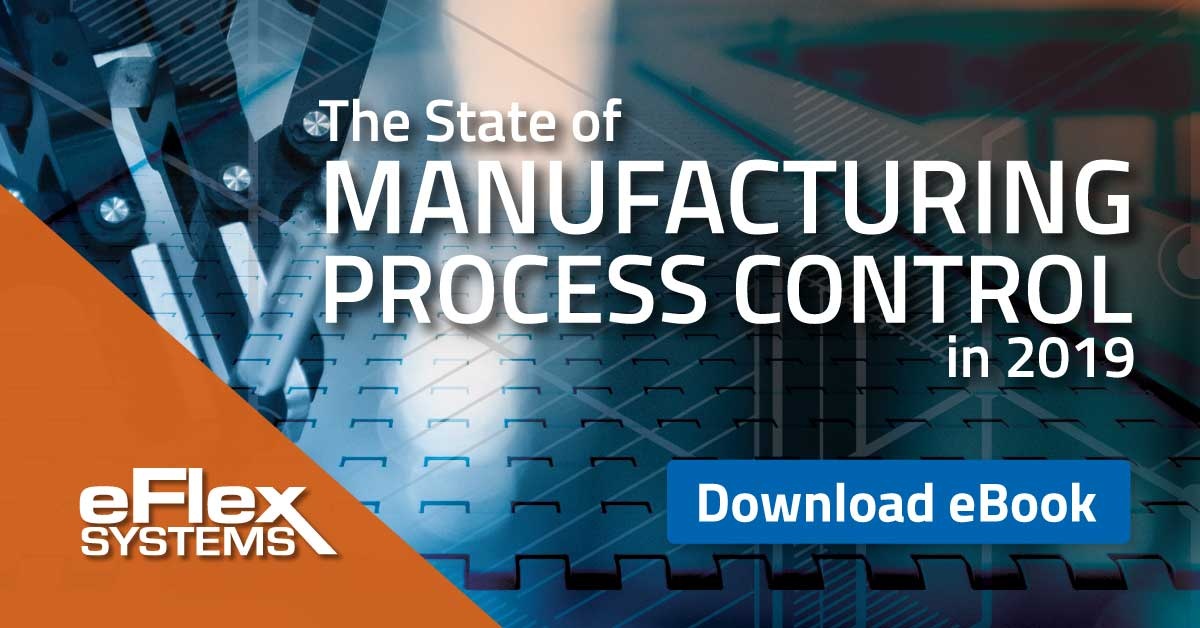Starting: Up (Manufacturing Startups and Inspired New Tech Solutions)
by Dan McKiernan, on Jul 29, 2019 5:04:08 PM

The Manufacturing sector is becoming more receptive to start-ups and inspired new tech solutions
On the surface, the manufacturing sector might seem like an ideal space for technical innovation. But the reality, as so many small start-ups with big ideas have discovered to their chagrin, is that new technology and young companies often find the manufacturing industry a tough nut to crack.
Selling new tech to large manufacturers hasn’t been easy. Structural obstacles include the traditionally risk-averse culture of large mainstream industrial companies and the perceived expense and complexity associated with changing or replacing existing systems. Long replacement cycles, extremely specific requirements, and a generally risk-averse collective mindset have also contributed to an industry-wise sluggishness when it comes to embracing potentially game-changing innovation. All of which has traditionally added up to a pretty punishing and drawn out sales process, even for some of the most intriguing new tools and technologies.
The good news, however, is that things are changing.
We are seeing a wave of new interest in industrial startups, a trend that some industry analysts and observers attribute to excitement around exponential increases in processing power and the emergence of an accessible manufacturing ecosystem in China. There is also growing enthusiasm about the potential and possibilities associated with exciting new Industry 4.0 technologies (especially things like Big Data and AI); the growing affordability and accessibility that comes with miniaturization and commoditization of powerful new technologies, and the availability of subscription and software as a service (SaaS) business models.
But how can technology innovators capitalize on these trends? What does it take to break through and make a meaningful industry impact? And what distinguishes game-changing tech solutions from big ideas that ultimately fall flat?
Manufacturing experience
It’s noteworthy—and almost certainly not a coincidence—that some of the most impactful manufacturing technology solutions are coming from tech innovators with a background in manufacturing. As a result, we are witnessing the emergence of a new generation of tech companies more fully grounded in the culture and practices of manufacturing. With start-ups and systems founded and designed by those who not only have a deep understanding of the technology, but of the problems that technology is designed to address, we are starting to see more practical, workable tech solutions. You can’t solve the unique challenges of manufacturers unless you understand the technical, logistical and operational nuances of those challenges.
Streamlined simplicity
To be successful, innovative new manufacturing tech has to be more than just a great concept—it has to be a truly workable solution. In other words, it can’t simply be technology for the sake of technology, it has to provide immediate and tangible benefits: either making existing processes easier, more consistent, and/or more efficient, or it has to deliver fully realized new processes that are clearly superior. In an industry where process is so fundamental to outcomes, streamlining and simplifying is an uncompromising priority. Leading tech solutions make things easier for everyone, from line operators on up to plant and process managers and control engineers. The best not only are intuitive and complete, but are powered by a technical architecture that makes communications and operations faster and more direct, instead of adding a new layer of complexity to the existing stack of legacy systems and infrastructure.
Ease of implementation
The move to SaaS subscription models—in some cases priced by station count and/or features instead of the number of users—has helped make cutting-edge digital manufacturing solutions more affordable and accessible. That’s important especially in an industry where many manufacturers don’t have an existing robust IT infrastructure in place—and who may view that as an obstacle to adoption. Compatibility and connectivity with existing tools and systems is key, as is a scalable and modular design that allows manufacturers to proceed with adoption at a pace and scale they are comfortable with. The best solutions aren’t just easy to use, they are easy to implement. They are secure, incur minimal network burden, and are available with easy set-up and plug-and-play functionality that minimizes or eliminates downtime.
Consequently, for the first time ever, buyers of powerful new manufacturing tech can be process engineers and plant managers. They can buy new tech that fits their budgets, and implement solutions on individual lines or in single factories to evaluate their fit before moving to full-scale adoption.
For the first time in a long time we are seeing the convergence of manufacturing tech start-ups and promising new manufacturing technologies with the systems, structures and industry dynamics that make those technologies adoptable. Consequently, it isn’t hard to envision a future manufacturing landscape transformed by these powerful new digital tools.
